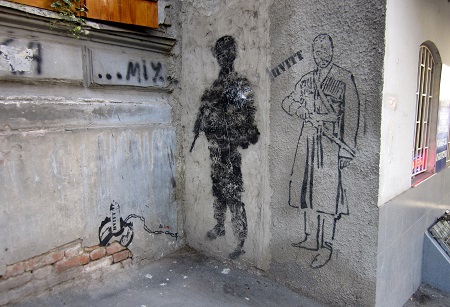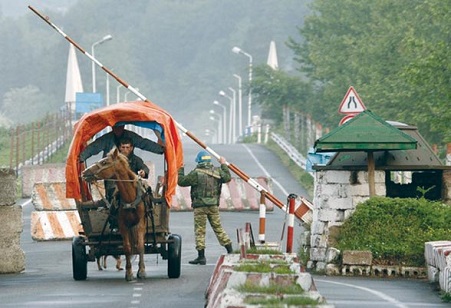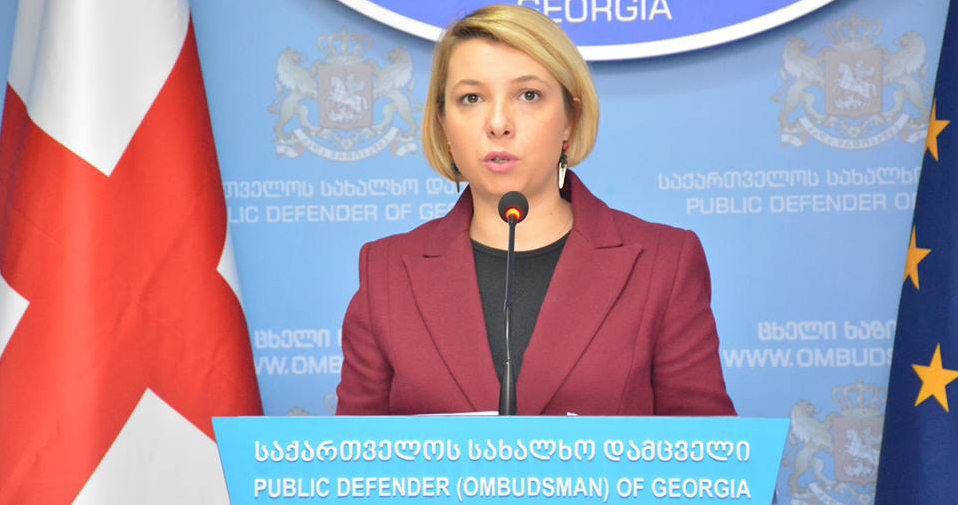Ombudsman: “Basic human rights are violated in Georgia’s de facto regions”

Georgia’s Public Defender Ucha Nanuashvili has released the country’s annual report on human rights, citing the situation in Georgia’s two breakaway regions Abkhazia and Tskhinvali (South Ossetia) as among the main current challenges.
Today Nanuashvili released the Public Defender’s Parliamentary Report 2015 that outlines the current state of human rights in Georgia.
The report stated people living in Georgia’s occupied regions are deprived of a range of opportunities and their fundamental human rights, such as the right to health, life, education and free movement, are continually violated.
Nanuashvili stressed ethnic discrimination and depriving people of their freedom was a blatant violation of basic human rights and had a "permanent nature”.
The Public Defender focused on the problem regarding education in Gali in de facto Abkhazia, where in 11 Georgian schools Russian language was introduced as the main language for pupils in Grades 1-4. Furthermore, the number of hours spent teaching Georgian language had been decreased for older students.
Georgia’s Ombudsman said due to this change, a number of parents were forced to leave the area and bring their children to schools on Georgia-controlled territory.
Nanuashvili added the forcible amendment in the de facto region’s curriculum had "deteriorated the level of education” offered to students.
The report also addressed participants of the Geneva International Discussions dealing with conflicts in Georgia and Parliament of Georgia to use all political, legal and diplomatic efforts to protect the education rights of Gali students.
Domestic violence in Gali was another topic the Public Defender highlighted in the latest report. He said there were no statistics available that depicted the current situation but the Ombudsman’s office managed to collect some information about the occurrence of domestic violence in the breakaway region.
He said 129 cases of family violence were reported in Gali in 2015; five of which ended in death while in one case a victim disappeared.
Meanwhile in 2015 the de facto Parliament of Abkhazia adopted a law that "completely prohibited” abortion on the territory of Abkhazia, even if the pregnancy posed a risk to the woman’s health.
Georgia’s Ombudsman said the blanket ban on abortion created the potential for increased illegal abortions, which in many cases led to fatalities of the expecting mother. Therefore rejecting all cases of abortions was a violation to a woman’s health and private life rights, stated the report.
Nanuashvili stressed he was aware of many other violations however locals were afraid to speak openly in fear of causing problems for themselves or their families. He also said Gali residents had no access to effective protection, and this was also a fundamental violation of their human rights.
Georgia’s Ombudsman believed the international community must activate efforts to persuade Russia to allow international monitors in the occupied regions, while the Georgian Government must reveal flexibility in human rights monitoring and protecting mechanisms to be created in the de facto regions.
 Tweet
Tweet  Share
Share





